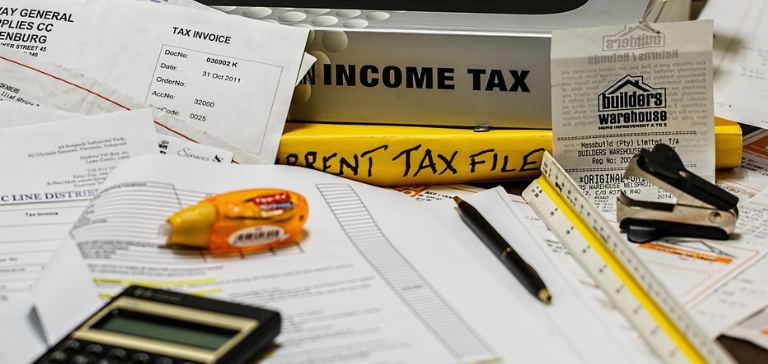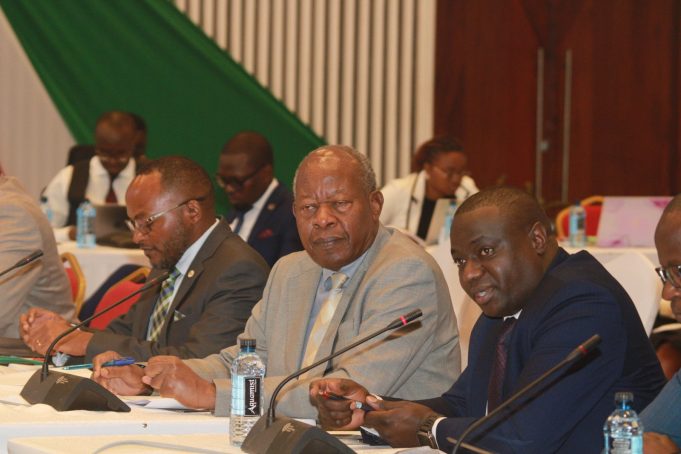Accountants in Kenya have made a bold call for sweeping tax reforms aimed at revitalizing the manufacturing sector and raising household incomes. Through detailed recommendations submitted to the National Assembly, the Institute of Certified Public Accountants of Kenya (ICPAK) is advocating for policy changes that it believes will realign Kenya’s tax framework with global standards and those of its regional competitors.
With the Finance Bill 2025 at the public participation stage, stakeholders are actively voicing their concerns and proposals. ICPAK is urging the government to review corporate income tax, VAT, and excise duties while also encouraging a more business-friendly tax environment to increase voluntary compliance, stimulate investments, and promote long-term economic growth.
Corporate Tax Reforms to Attract Investment
Lowering Corporate Tax for Competitiveness
ICPAK has recommended reducing the corporate income tax rate from 30% to 28%. This aligns Kenya closer to the global average of 23.51% and the African average of 27.28%. A lower corporate tax rate is viewed as a crucial factor in positioning Kenya as an investment destination and enhancing the country’s appeal to both domestic and foreign businesses.
The institute argues that a competitive tax environment will reduce the incentive for aggressive tax planning and encourage higher compliance rates. This adjustment could also help the country retain and attract multinational firms that might otherwise be discouraged by higher taxation.
Supporting Industrial Growth Through Targeted Tax Relief
Rationalizing VAT and Excise Duty
To ease the financial pressure on local manufacturers, ICPAK is pushing for a reduction in the VAT rate from the current 16% to 15% in the first year, followed by a gradual decrease to 14%. The high VAT rate is believed to have dampened consumption and decreased overall revenue potential. Lowering it is expected to restore purchasing power and stimulate domestic demand.
Excise duties on locally manufactured plastic products and other industrial goods have also been highlighted as areas needing reform. By scrapping these taxes, ICPAK believes Kenya can better support local industries, reduce production costs, and promote competitive pricing in both local and regional markets.
Long-Term Tax Loss Deductions for Sustainable Growth
Revising the Tax Loss Carry Forward Cap
Under the Finance Bill 2025, the government is proposing a five-year cap on the carry-forward of tax losses. ICPAK, however, recommends extending this cap to 15 years. Many capital-intensive industries, particularly in manufacturing, require more time to realize returns on their investments. The proposed five-year limit may not be sufficient for these companies to utilize legitimate tax loss carry-forwards generated from investment allowances.
By allowing 15 years, Kenya can provide a more realistic recovery window for firms involved in long-term infrastructure or industrial projects. This would not only encourage larger-scale investments but also support job creation and industrialization.

Improving Predictability Through Advance Pricing Agreements
Establishing a Framework for APAs
To enhance tax certainty, ICPAK recommends establishing a formal framework for Advance Pricing Agreements (APAs) for non-resident entities. APAs facilitate the agreement between multinational corporations and tax authorities on transfer pricing methods in advance, thereby reducing disputes and ensuring the fair taxation of cross-border transactions.
Tanzania, Uganda, and Rwanda have already adopted similar provisions, and Kenya’s adoption could foster greater investor confidence. However, ICPAK emphasizes the need for clear procedures and sufficient administrative capacity to make APAs effective.
Safeguarding the Affordable Housing Agenda
Retaining Incentives for Real Estate Developers
ICPAK has expressed concern over the proposed repeal of the preferential 15% income tax rate for companies that build 100 or more residential units. Removing this incentive could undermine the government’s Bottom-Up Economic Transformation Agenda (BETA), especially the affordable housing initiative.
By maintaining the tax incentive, developers would continue to have financial motivation to undertake large-scale housing projects. Without it, Kenya may experience a slowdown in affordable housing supply, making it more difficult for citizens to access low-cost homeownership opportunities.
Strengthening Kenya’s Industrial Competitiveness
Enhancing Local Manufacturing Capabilities
To promote local production and reduce import dependency, ICPAK has urged the retention of tax incentives for local vehicle assemblers. The removal of excise duty on industrial inputs—whether locally produced or imported—is also part of the proposal to ensure manufacturers can operate efficiently and competitively.
Additionally, the harmonization of tax policies across various sectors, such as health, energy, and transportation, is seen as crucial. By providing a stable, coherent tax policy environment, the government can facilitate better planning and execution of long-term industrial strategies.
Addressing Revenue Mobilization and Compliance
Encouraging Voluntary Compliance
Despite the introduction of tools like the Electronic Tax Invoice Management System (eTIMS), ICPAK notes that compliance levels remain below expectations. To address this, the institute advocates for a tax policy framework that promotes voluntary compliance rather than relying on heavy-handed enforcement.
A simplified and fair tax regime could encourage more businesses to join the formal economy, broaden the tax base, and improve revenue mobilization without overburdening existing taxpayers.

FAQ’s
Why is ICPAK recommending a reduction in corporate tax rates?
To align Kenya’s rates with global and regional averages, making the country more attractive for investments and promoting voluntary compliance.
What is the significance of extending tax loss carry forward to 15 years?
Capital-intensive industries require more extended recovery periods; a 15-year cap provides realistic timeframes for utilizing tax losses resulting from legitimate investment allowances.
How would reducing VAT benefit the economy?
A lower VAT rate would increase disposable income, boost consumption, and enhance revenue collection through broader compliance.
What are Advance Pricing Agreements (APAs), and why are they important?
APAs help determine fair pricing for transactions within multinational firms in advance, reducing tax disputes and ensuring fair taxation.
Why should the housing sector’s tax incentive be retained?
It supports the government’s affordable housing goals under BETA by making large-scale residential construction financially viable for developers.
Conclusion
The recommendations by ICPAK reflect a strategic push toward creating a fair, growth-oriented, and investment-friendly tax regime. By aligning Kenya’s tax policies with international standards, supporting industrial growth, and encouraging voluntary compliance, the proposed reforms aim to strengthen the economy and improve living standards. These changes, if implemented, could provide the foundation for long-term fiscal sustainability and inclusive development.








